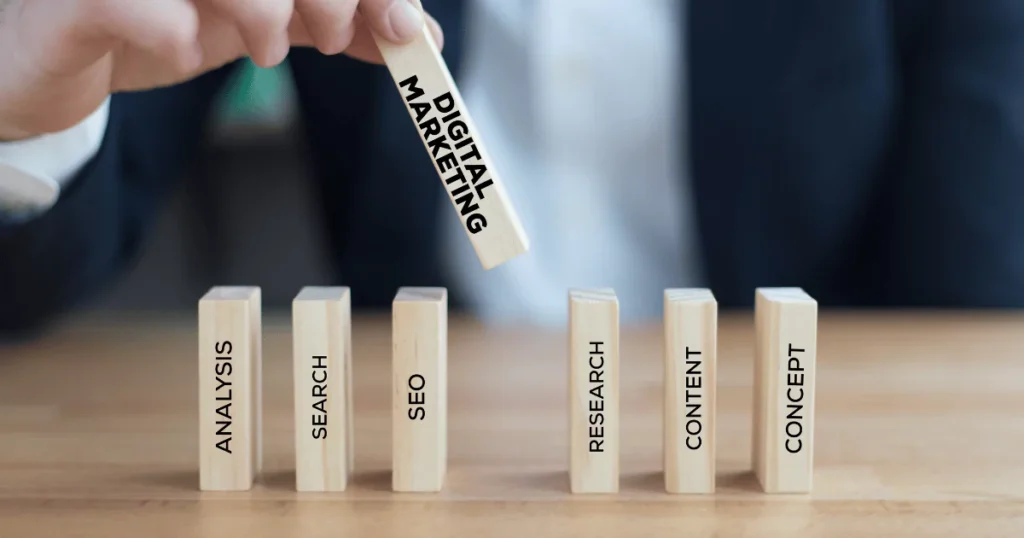Embarking on a journey into the realm of digital marketing is akin to stepping into a dynamic and ever-evolving landscape where innovation knows no bounds. Congratulations on completing your digital marketing course! Armed with foundational knowledge and a thirst for growth, you’re now poised to elevate your skills and carve your niche in this exciting field. But the learning doesn’t stop at the end of the course; rather, it marks the beginning of a continuous quest for mastery and excellence. In this guide, we’ll explore ten actionable strategies to help you enhance your digital marketing prowess post-course completion. From specializing in a niche to embracing hands-on experimentation, attending workshops, and seeking mentorship, each step is designed to empower you on your journey toward becoming a proficient and sought-after digital marketer. So, let’s dive in and unlock the secrets to mastering the art and science of digital marketing in the digital age.
1.Specialize in a Niche:
- Research various niches within digital marketing, such as social media marketing, email marketing, content marketing, PPC advertising, SEO, or influencer marketing.
- Evaluate your interests, strengths, and career goals to determine which niche aligns best with your skills and aspirations.
- Dive deep into your chosen niche by reading books, taking advanced courses, and following industry leaders and influencers.
- Practice implementing strategies specific to your niche through real-world projects, internships, or freelance opportunities.
- Continuously refine your skills and knowledge in your chosen niche to position yourself as an expert in the field.
2.Attend Workshops and Conferences:
- Research upcoming workshops, seminars, and conferences related to digital marketing in your area or online.
- Register for events that cover topics relevant to your interests and career goals, such as social media marketing, content strategy, or digital advertising.
- Take advantage of networking opportunities at these events to connect with industry professionals, potential mentors, and like-minded peers.
- Attend keynote presentations, panel discussions, and breakout sessions to gain insights from industry experts and thought leaders.
- Make sure to follow up with contacts you meet at these events and stay engaged with the digital marketing community.
3.Analyze Data and Metrics:
- Familiarize yourself with key metrics and KPIs (Key Performance Indicators) used to measure the success of digital marketing campaigns, such as website traffic, conversion rates, click-through rates, and engagement metrics.
- Learn how to use tools like Google Analytics, Google Ads, Facebook Insights, and email marketing platforms to track and analyze data.
- Develop the ability to interpret data trends, identify patterns, and draw actionable insights to optimize marketing strategies and campaigns.
- Experiment with different data visualization techniques to communicate findings effectively to stakeholders and decision-makers.
- Stay updated with advancements in data analytics and visualization tools to leverage the latest technologies for data-driven decision-making.
4.Experiment with Different Tools:
- Research and explore a wide range of digital marketing tools and software available in the market, such as SEO tools, social media management platforms, email marketing software, and content creation tools.
- Take advantage of free trials or demo versions of tools to test their features and functionalities before investing in paid subscriptions.
- Attend webinars, tutorials, or online courses offered by tool providers to learn how to use their products effectively.
- Develop proficiency in using popular tools such as Google Analytics, SEMrush, Hootsuite, Canva, and Mailchimp to streamline your digital marketing workflows.
- Stay updated with new tools and technologies entering the market by reading industry blogs, following tool providers on social media, and attending product demonstrations.
5.Collaborate with Peers:
- Join online communities, forums, or social media groups dedicated to digital marketing where you can connect with fellow marketers, share insights, and seek advice.
- Actively participate in group discussions, ask questions, and contribute valuable content to establish yourself as a trusted member of the community.
- Seek out opportunities for collaboration with peers on projects, case studies, or knowledge-sharing initiatives.
- Organize or participate in virtual meetups, hackathons, or collaborative workshops with other digital marketers to brainstorm ideas and solve challenges together.
- Take advantage of peer feedback and constructive criticism to improve your skills and expand your professional network in the digital marketing community.
6.Volunteer for Projects:
- Research nonprofit organizations, community groups, or small businesses in your local area that could benefit from digital marketing support.
- Reach out to these organizations to offer your services pro bono or at a discounted rate, emphasizing the value you can provide in improving their online presence and marketing efforts.
- Collaborate with the organization to define clear goals, objectives, and deliverables for the digital marketing project.
- Execute the project with professionalism, creativity, and attention to detail, leveraging your skills and knowledge gained from your digital marketing course.
- Document the results and impact of the project to showcase your experience and contributions in your portfolio or resume.
7.Stay Updated with Industry Blogs and Podcasts:
- Subscribe to reputable digital marketing blogs, podcasts, and YouTube channels that cover a wide range of topics, including SEO, content marketing, social media, email marketing, and digital advertising.
- Create a curated list of industry resources and set aside time each week to consume valuable content from these sources.
- Stay informed about the latest trends, best practices, case studies, and expert insights shared by thought leaders and practitioners in the field.
- Engage with content creators by leaving comments, sharing their content on social media, and participating in discussions on their platforms.
- Apply learnings from industry blogs and podcasts to your own digital marketing strategies and campaigns, testing new ideas and staying ahead of the curve in your practice.
8.Pursue Advanced Certifications:
- Research advanced certification programs offered by reputable institutions, industry associations, or technology companies in areas such as Google Ads, Google Analytics, Facebook Blueprint, HubSpot, or Salesforce Marketing Cloud.
- Evaluate the requirements, curriculum, and accreditation of each certification program to ensure it aligns with your career goals and areas of expertise.
Enroll in online courses, bootcamps, or training programs designed to prepare you for certification exams and equip you with advanced skills and knowledge. - Dedicate time to study and practice exam preparation materials, including practice tests, sample questions, and case studies to reinforce your learning.
- Upon completing the certification program, showcase your achievement on your resume, LinkedIn profile, and professional portfolio to demonstrate your expertise and credibility to potential employers or clients.
9.Conduct A/B Testing:
- Learn about the principles of A/B testing (also known as split testing) and how it can be used to optimize digital marketing campaigns for better performance.
- Identify elements within your marketing campaigns that can be tested, such as ad copy, images, headlines, landing pages, call-to-action buttons, or email subject lines.
- Set clear objectives and hypotheses for each A/B test, defining the specific metrics you will measure to evaluate the effectiveness of each variation.
- Use A/B testing tools and platforms to create and run experiments, ensuring proper tracking and randomization of test groups.
Analyze the results of A/B tests to identify winning variations and insights that can inform future marketing decisions and optimizations.
10.Mentorship and Coaching:
- Seek out experienced digital marketers or industry professionals who are willing to serve as mentors or coaches to support your professional development.
- Identify individuals whose expertise, experience, and values align with your career goals and aspirations.
- Reach out to potential mentors through professional networking platforms, industry events, or mutual connections, expressing your interest in establishing a mentoring relationship.
- Be proactive in seeking guidance, feedback, and advice from your mentor on various aspects of digital marketing, career growth, and personal development.
- Act on the advice and recommendations provided by your mentor, leveraging their insights and expertise to overcome challenges, set goals, and advance your career in digital marketing.
- By implementing these strategies and actively investing in your continued learning and development, you’ll be well-positioned to excel in the dynamic and competitive field of digital marketing.




